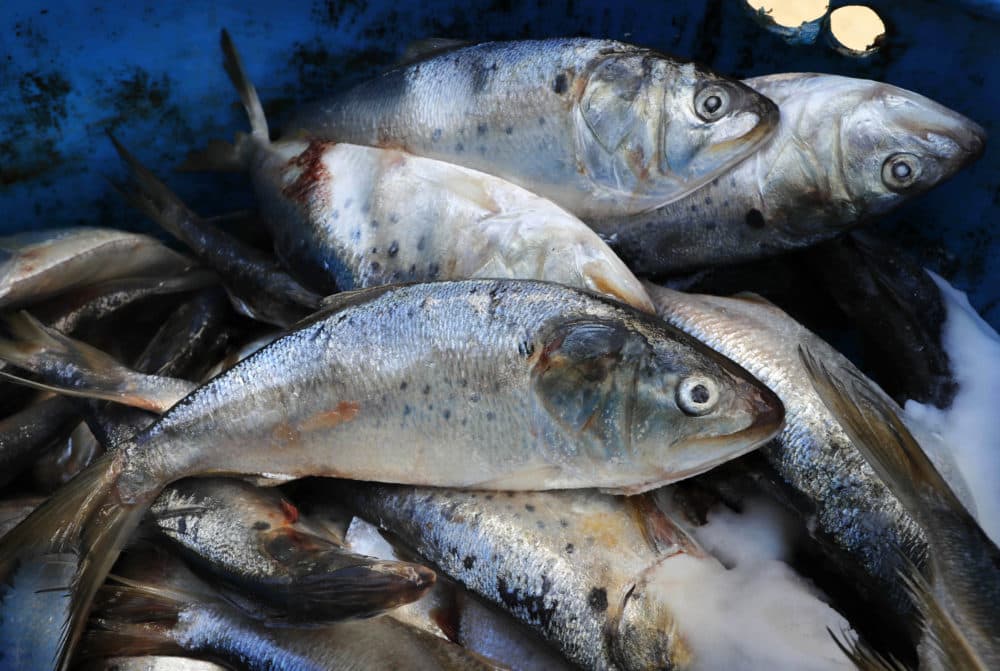Advertisement
Surge in baitfish catch is a boon to Maine's lobstermen

A surge in the catch of a small species of fish called menhaden off the Maine coast has helped stabilize a bait crunch that's plagued the state's lobster industry for several years.
Maine's lobster fishermen typically bait their traps with dead herring, but a scientific assessment in 2020 found that herring are overfished, and quotas for the fish were reduced dramatically. The loss of herring has increased the price of bait and made it harder for many fishermen to trap lobsters.
However, losing herring has been offset somewhat by swelling catches of menhaden. Maine's catch of menhaden — also called pogies or bunker — grew from about 6 million pounds in 2016 to more than 24 million pounds last year.
The bait shortage has been happening at a time of high lobster prices for consumers. However, the prices of bait and lobster aren’t necessarily linked because of the complex lobster supply chain.
The cost of bait is still a struggle for the state's lobstermen, but the greater availability of menhaden has been beneficial, said Patrice McCarron, executive director of the Maine Lobstermen's Association.
“These local menhaden landings have proved to be a very important and stable source of bait for a lot of lobstermen,” McCarron said, using the term "landings” to mean catch brought to the dock.
Menhaden are subject to one of the largest commercial fisheries in the U.S., and nationwide catches have been stable. U.S. fishermen typically catch more than a billion pounds of the fish every year, and they're widely used in animal feed, farmed fish food and fish oil. Bait is a small piece of the total fishery.
The regulatory Atlantic States Marine Fisheries Commission is working on potential new rules governing menhaden fishing. One reason for the possible rule changes is “the increasing abundance of menhaden in New England,” the commission said in a statement.
The population of menhaden off New England has ebbed and flowed over the years. The recent high catches are the most in Maine since the mid-1980s, state records show. Catches are also up in Massachusetts.
Herring fishermen in the state are also hopeful they'll be able to catch more herring again in the coming years, said Mary Beth Tooley, director of government affairs for the O'Hara Corporation, a herring harvester in Rockland, Maine.
The nationwide catch of herring was more than 100 million pounds as recently as 2017, but slumped to less than 21 million last year. The herring fishery is based mostly in Maine and Massachusetts.
“I think if we had these low herring quotas and menhaden wasn’t as abundant as it has been, that would be a huge problem,” Tooley said.